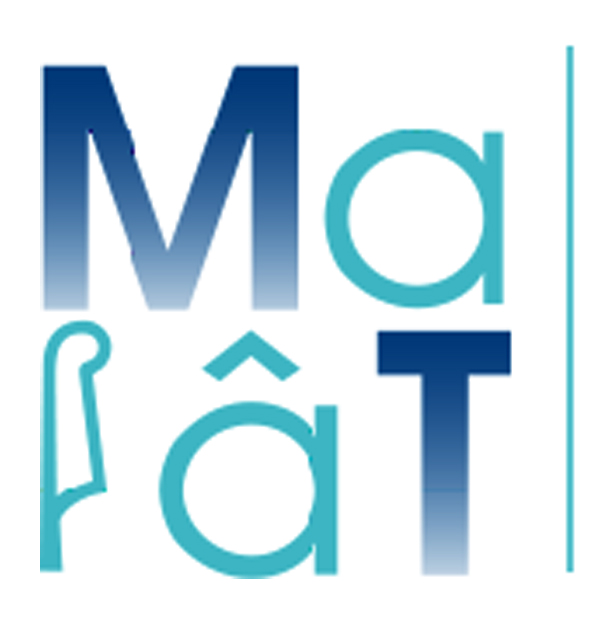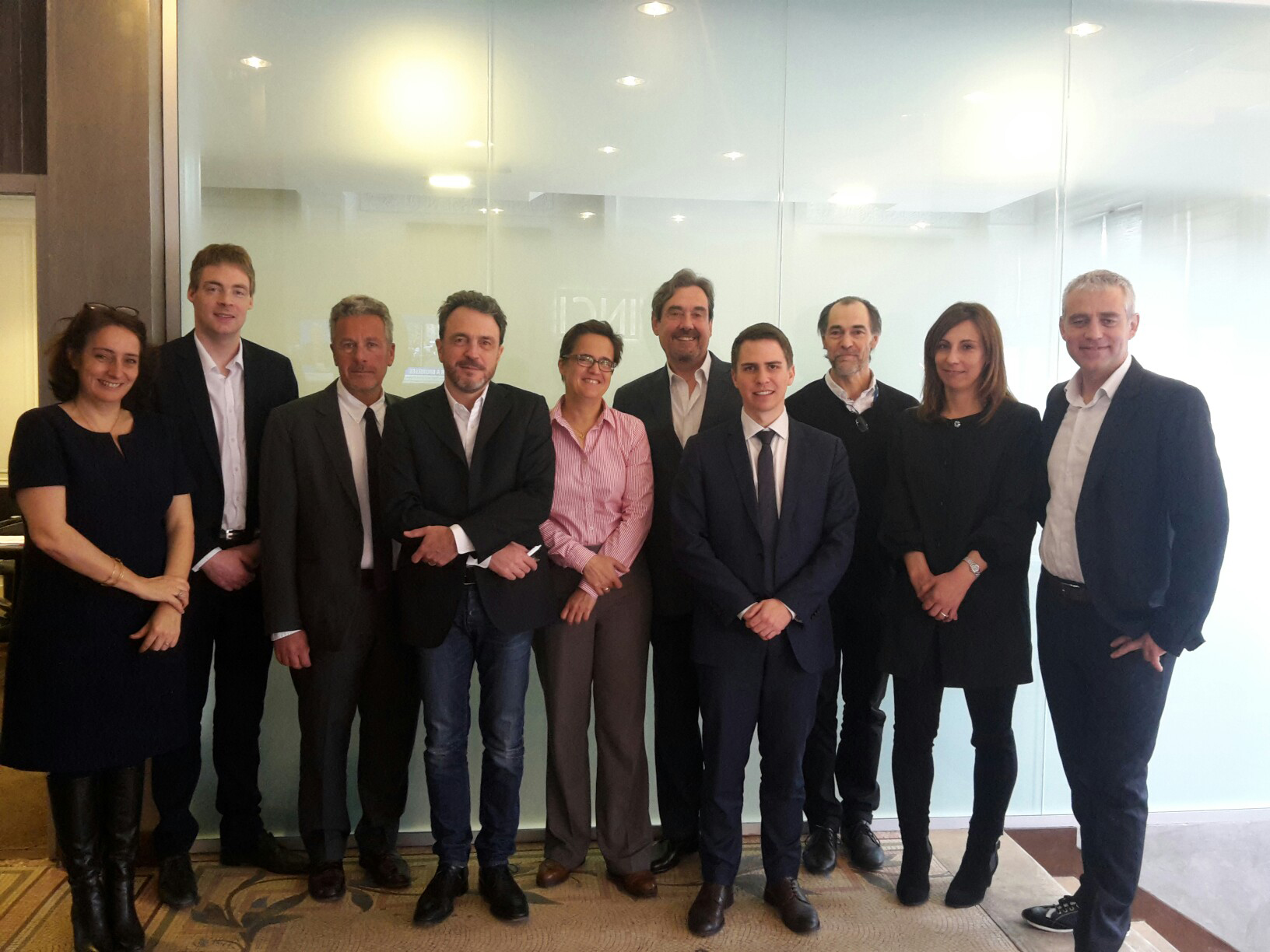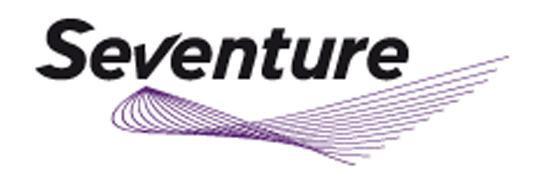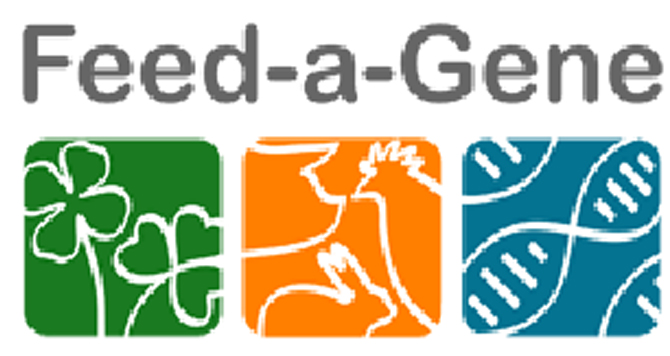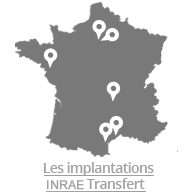Les sept propositions de projets – six coordonnées par l’INRA, une par Terres Inovia – dont INRA Transfert à accompagné le dépôt à la deuxième étape du troisième appel du défi sociétal 2 d'Horizon 2020* ont été sélectionnées pour financement.
- AgriLink coordonnée par Pierre Labarthe, INRA
- DiverIMPACTS coordonnée par Antoine Messéan, INRA
- GenTORE coordonnée par Nicolas Friggens, INRA
- ReMIX coordonnée par Eric Justes, INRA
- SolACE coordonnée par Philippe Hinsinger, INRA
- EUCLeg coordonnée par Bernadette Julier, INRA
- Et la proposition LegVALUE coordonnée par Frédéric Muel, Terres Inovia
*Horizon 2020 : un programme Européen pour la recherche et l'innovation : pour en savoir plus cliquez ici
Ci-dessous les résumés en anglais de ces projets :
AgriLink
Agricultural Knowledge: Linking farmers, advisors and researchers to boost innovation
Coordinated by Pierre Labarthe
AgriLink aims to stimulate sustainability transitions in European agriculture through better understanding the roles played by farm advice in farmer decision-making.
To this end, AgriLink will analyse and improve the role of farmer advice in 8 innovation areas that combine challenges identified in the Strategic Approach to EU Agricultural Research & Innovation. AgriLink builds on the premise that the full range of advice-providing organisations need to be included in the assessment of service provision and innovation adoption.
The methodology combines theoretical insights with cutting edge research methods within a multi-actor, transdisciplinary approach. It draws on ‘micro-AKIS’ (individuals and organisations from whom farmers seek services and exchange knowledge with) analysis in 24 focus regions, sociotechnical scenario development and ‘living laboratories’ where farmers, advisors and researchers work together. Research in focus regions will provide insight in farmers’ micro-AKIS, advisory suppliers’ business models, and regional farm advisory systems. This will feed an assessment of the efficacy of governance of farm-advice-research interactions across Europe. Newly developed advisory methods and new forms of research-practice interaction will be validated and further developed in living laboratories. A socio-technical scenario method will be used to explore, jointly with stakeholders, transition pathways towards more sustainable agriculture.
Crucially, AgriLink builds on insights and experiences from both research and practice. The consortium consists of researchers from different disciplines (institutional economics, innovation studies, AKIS studies, sociology of networks), as well as of advisors (from public, private and farmer-based organisations) from across the EU. Actors from advisory services and AKIS will be active in the validation and dissemination of results, to ensure that all project findings are both scientifically sound and practically useful.
DiverIMPACTS
Diversification through Rotation, Intercropping, Multiple Cropping, Promoted by Actors and Value Chains towards Sustainability
Coordinated by Antoine Messéan
The overall goal of DiverIMPACTS is to realise the full potential of diversification of cropping systems for improved productivity, delivery of ecosystem services and resource-efficient and sustainable value chains by: i) assessing performances of crop diversification through rotation, intercropping and multiple cropping; ii) providing rural areas actors with those key enablers and innovations that would remove existing barriers and ensure actual uptake of benefits of crop diversification at farm, value chain and territory levels; iii) make recommendations to policy-makers to facilitate the coordination of all relevant actors within the value chain. DiverIMPACTS will build on existing experiences of crop diversification by networking and expanding 10 existing field experiments to quantify impacts of crop diversification and by accompanying 25 multi-actor case studies in their dynamic transition. DiverIMPACTS will propose a range of technical and organisational innovations to remove lock-ins from farmers to consumers as well as strategies and recommendations to sustain crop diversification.
The consortium includes a wide range of actors (farmers and farmers’ organisations, advisory services, cooperatives, logistic providers, scientists, industry, representatives of civil society and of rural areas). DiverIMPACTS will, through a multi-actor approach, accompany and support innovation groups in their dynamic process to develop sustainable value chain systems characterised by a high level of crop diversification and new market products. The consortium involves pioneer actors of crop diversification and has great experience in both the design and multi-criteria assessment of innovative systems and the analysis of barriers that may lock-in the transition towards sustainable diversified systems that would contribute to the Rural Renaissance objectives.
EUCLEG
Breeding forage and grain legumes to increase EU’s and China’s protein self-sufficiency
Coordinated by Bernadette Julier
EUCLEG aims to reduce Europe and China’s dependency on protein imports by developing efficient breeding strategies for the legume crops of major economic importance in human food and animal feed. The objective is to improve diversification, crop productivity, yield stability and protein quality of both forage (alfalfa and red clover) and grain (pea, faba bean and soybean) legumes. Using diverse and extensive genetic resources and taking advantage of advanced molecular tools, EUCLEG aims to identify and develop the best genetic resources, phenotyping methods and molecular tools to breed legume varieties with improved performance under biotic and abiotic stresses in the representative European and Chinese agro-ecological areas. The potential for new uses of forage species for human nutrition will be explored. Searchable databases will be developed or built to host passport, agronomic and genetic data facilitating exchanges and use of genetic resources. The evaluation of genetic resources in multi-site trials will give keys to broaden the breeding material and extend agro-ecological adaptation. The genetic architecture of key breeding traits will be analysed using association studies in order to identify molecular markers related to phenotypic traits. Finally, genomic selection strategies will be assessed for their potential to improve genetic progress. Practical tools for genotyping, data management and calculation will be provided to breeders to implement marker-assisted selection and genomic selection leading to the creation of new varieties in the long-term. The partnership gathered in EUCLEG, combining public institutes and private companies of Europe and China, guaranties the transfer of knowledge from research to seed industry.
GenTORE
Genomic management Tools to Optimise Resilience and Efficiency
Coordinated by Nicolas Friggens
The objective of GenTORE is to develop innovative genome-enabled selection and management tools to optimise cattle resilience and efficiency (R&E) in widely varying environments. These tools, incorporating both genetic and non-genetic variables, will be applicable across the full range of systems (beef, milk and mixed), and will thereby increase the economic, environmental and social sustainability of European cattle meat and milk production systems. To achieve this, GenTORE brings together: i) multidisciplinary scientific expertise in genomics, environmental assessment, nutritional physiology, health management, precision livestock farming, mathematical modelling, and socio-economics; ii) partners and stakeholders representing breeding organisations, farm technology companies, farm and veterinary advisory services, and farm sectors (organic, grazing, etc.); iii) a unique data basis including more than 1 million genotypes. This multi-actor team will develop tools for: multi-breed selection for R&E, characterisation of diverse farm environments, large-scale phenotyping of R&E using on-farm technology, on-farm management of breeding and culling decisions, and predicting the consequences for farm resilience of changing breeding and management. These tools are designed to be applicable under commercial conditions at the end of the project. They will allow increased use of the genomic diversity in cattle breeds, e.g. use of selective cross-breeding to best exploit the local production environment. They will also allow farm managers, their advisors, and policy-makers, to assess the relative importance of breeding for animal resilience vs breeding for efficiency, with respect to system resilience. As such GenTORE will not only enable the use of genomic information to facilitate predictive biology of efficiency- and resilience-related traits, but will also increase resilience of livestock production in the face of current and future challenges of climate change and food security.
ReMIX
Redesigning European cropping systems based on species MIXtures
Coordinated by Eric Justes
ReMIX will exploit the benefits of species mixtures to design more diversified and resilient agro-ecological arable cropping systems less dependent on external inputs. Based on a multi-actor approach, ReMIX will produce new knowledge that is both scientifically credible and socially valuable in conventional and organic agriculture. It will tackle practical questions and co-design ready-to-use practical solutions adapted to producing mainly grain cash crops in diverse EU pedo-climatic conditions. ReMIX will: 1) overcome barriers to stimulate the adoption of species mixtures by farmers and in agri-food chains, 2) unravel mechanisms of plant-plant interactions to maximise resource use efficiency, 3) determine the role of species mixtures in controlling diseases, pests and weeds and alleviating yield damages, 4) demonstrate the role of species mixtures in improving ecosystem service provision and development of resilience to biotic stress, 5) identify key traits and create novel breeding and phenotyping methods and tools adapted to species mixtures, 6) generate novel breeding material adapted to grain legume/cereal mixtures, 7) develop generic rules for assembling species for efficient cash crop production using process-based simulation models, 8) develop new management techniques to optimise species mixtures performance, 9) optimise settings and specifications for agricultural machines for harvesting and separating grains, and 10) develop a tool box, an educational serious game and technical booklets for farmers and advisors. The project will span from the specification of end-user needs and the co-design of in-field and on-farm experiments to demonstrations with evaluation of new varieties and practices. ReMIX will contribute to the adoption of productive and resilient agricultural systems based on plants diversity, to increase legume production and competitiveness in EU and to healthier diets based on plant proteins from cereals and legumes.
SolACE
Solutions for improving Agroecosystem and Crop Efficiency for water and nutrient use
Coordinated by Philippe Hinsinger
SolACE's overarching goal is to help European agriculture facing the challenge to deal with more frequent combined limitations of water and nutrients in the coming decades, through the design of novel crop genotypes and agroecosystem management innovations to improve water and nutrient (i.e. N and P) use efficiency. To achieve this goal, SolACE will focus its activities on three major European crops - potato, bread and durum wheat - and will identify the (i) optimum combinations of above- and below-ground traits for improving resource use efficiency, (ii) best-performing genotypes under combined water and N or P stresses and (iii) novel practices that make better use of plant-plant and plant-microbe interactions to access water, N and P resources in conventional, organic and conservation agriculture. SolACE will implement a double interactive innovation loop, based on agroecosystem management and breeding strategies, and will imply the engagement of diverse end-users, across the production chain, from farmers and farm advisors to NGOs, SMEs and larger industries in the agri-business sector, through the SolACE consortium and a range of stakeholders' events. The tested innovations will include crop genotype mixtures, legume-based crop rotations and cover crops, microbial inoculants, as well as improved decision support systems and hybrids or products from genomic selection and participatory evolutionary breeding schemes. SolACE will implement complementary approaches, from data mining, modelling, phenotyping in high throughput platforms and field conditions, to experiments in research stations and farmers' networks in contrasted pedo-climatic zones. Through the co-design and co-assessment with the end-users of the selected novel breeding and management strategies to increase the overall system resource use efficiency, the findings of SolACE will be deemed acceptable and readily available for dissemination to a broad spectrum of stakeholders, including policy-makers.
LEGVALUE
To develop sustainable legume-based farming systems and agri-feed and food chains in the EU
Coordinated by Frédéric Muel, Terres Inovia
The goal of LEGVALUE is to pave the road to develop sustainable and competitive legume-based farming systems and agrifeed and food chains in the EU. To this end, the project will assess both the economic and environmental benefits for the EU agro industry to widely produce and use legumes in a sustainable manner. Using a list of 20 value chains reflecting the market diversity, and a list of 20 farm networks covering the diversity of grain legumes and fodder legumes species, LEGVALUE will demonstrate the added value of various legumes value chains and will provide a range of solutions to improve the economic interest of each actor involved in the value chains to use legumes. The feature of LEGVALUE is an approach to research that takes stakeholder-driven objectives. The gap between research and practice will be overcome with close collaboration between non-academic actors and scientists. LEGVALUE will result in the first decision tool for farmers to choose the optimal legume species with their adapted crop management and to assess the economic and environmental benefits of legumes in the cropping and grassland systems. LEGVALUE will contribute to identifying the supply chains that are the most competitive to foster legumes crops so helping the EU to identify: i) the technological topics that must be supported in priority to enhance legumes development; ii) insights into how to support actors coordination for better added value sharing iii) the new standards that will help trade and process of legumes. LEGVALUE will provide accurate recommendations for the development of legumes in the EU. By removing current market opacity and the design of transition pathways, LEGVALUE will provide scientific support for EU and national policy-makers directed at increasing legume production, support technological innovation and organisational innovation in supply chains, meeting the EU Parliament 2011 motion on increasing self-sufficiency on protein rich plant materials.



 Le rapport annuel 2015 d'INRAE Transfert est disponible.
Le rapport annuel 2015 d'INRAE Transfert est disponible.